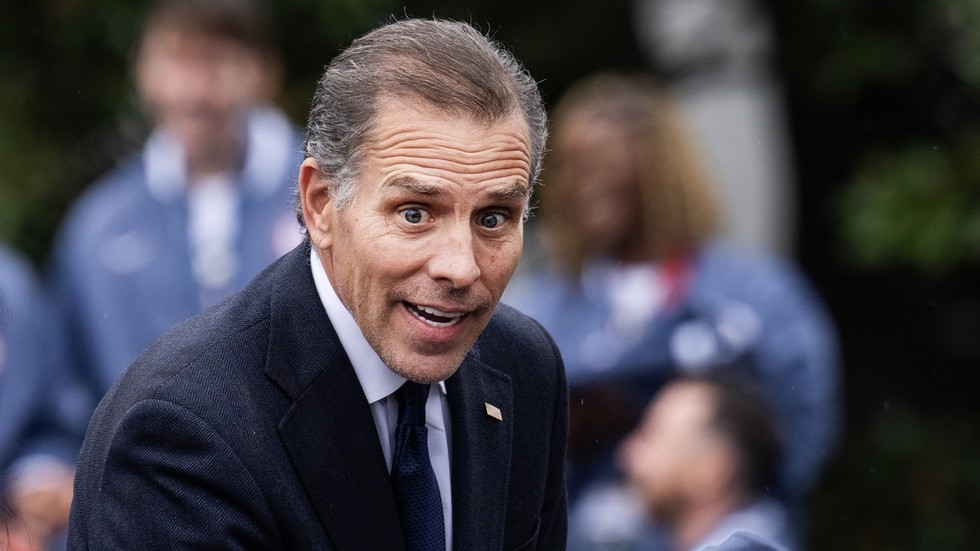In a dramatic political maneuver, outgoing President Joe Biden recently granted his son, Hunter Biden, a ten-year pardon, sparking significant controversy and debate. The decision comes amidst Hunter’s legal challenges related to allegations of financial impropriety and political influence while serving on the board of the Ukrainian gas company Burisma. In his statement regarding the pardon, Biden asserted that the prosecution of his son has been tainted by “selective prosecution,” labeling it an unjust attack motivated by political adversaries aiming to undermine his presidency. This sweeping pardon aims to absolve Hunter of criminal liability for any actions taken over the last decade, a period that includes his controversial business dealings that have drawn scrutiny from both legal and political arenas.
In connection with Biden’s decision, lawyers for President-elect Donald Trump have referenced his statements in a legal motion to dismiss ongoing charges against Trump in New York. The motion argues that Biden’s comments reflect a significant criticism of his own Department of Justice (DoJ), emphasizing that the political dimensions of the case against Hunter Biden may also implicate the motivations behind the charges against Trump. Trump’s legal team contends that the actions taken against both the former president and his son showcase a broader pattern of politically motivated prosecutions, asserting that Hunter’s case has been unduly influenced by the Biden administration’s desire to attack Trump and tarnish his campaign efforts.
Trump’s ongoing legal battles are further complicated by his recent conviction on felony charges related to hush money payments made during the 2016 presidential campaign to adult film actress Stormy Daniels. The case, spearheaded by New York District Attorney Alvin Bragg, with its implications for Trump as the first former president to face felony conviction, exemplifies the contentious relationship between the former president and the legal system. His legal team has filed a motion with Manhattan Judge Juan Merchan urging the court to dismiss the case on the basis that Bragg has operated from a politically biased standpoint. Trump’s attorneys argue that these proceedings disrupt his transition into a potential second term in office, as they attempt to position the former president as a victim of systematic political castigation.
Critics of Trump capitalize on his felony convictions and the multitude of ongoing legal battles—including multiple charges filed against him—to question his fitness for future office. In contrast, Trump has persistently claimed that these legal woes stem from an orchestrated “witch hunt,” a view he has amplified during his campaign rallies and public appearances. The narrative of political persecution resonates strongly with his base, who see their favored candidate targeted for reasons beyond mere legal infractions. This complex interplay between Trump’s legal challenges and Biden’s political actions encapsulates the heightened tensions and divisive political climate in America today.
The legal implications of the pardon granted to Hunter Biden extend into broader discussions regarding influence peddling, particularly concerning the time he spent involved with Burisma. Critics of the Biden family suspect that Hunter’s business engagements could constitute an exploitation of political connections for personal gain. This sentiment is heightened by Biden critics who argue that the ten-year immunity granted to Hunter undermines accountability and transparency, suggesting that it sets a troubling precedent for political families navigating the intersection of business and government service. The partisan divide is stark, with supporters of Biden defending the pardon as a necessary move to protect the rule of law against politically motivated infringements.
In summary, the contrasting legal narratives surrounding Hunter Biden and Donald Trump unfold against the backdrop of an increasingly polarized American political landscape. Biden’s sweeping pardon is positioned as a protective measure amid allegations of political targeting, while Trump’s team continues to fight against what they describe as partisan attacks driven by his opponent’s ambitions. The implications of these developments are significant, not just for the individuals involved, but for the broader political discourse regarding governance, accountability, and the integrity of the nation’s legal institutions. As both legal battles progress, they will likely shape the upcoming political season and influence perceptions of leadership, ethics, and justice in America going forward.

